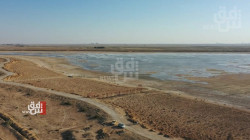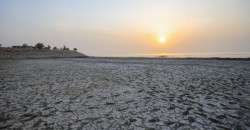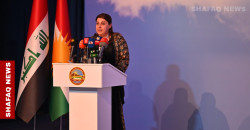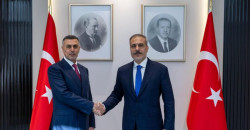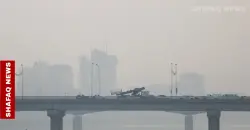Thirsty for solutions: Water scarcity grips Iraq
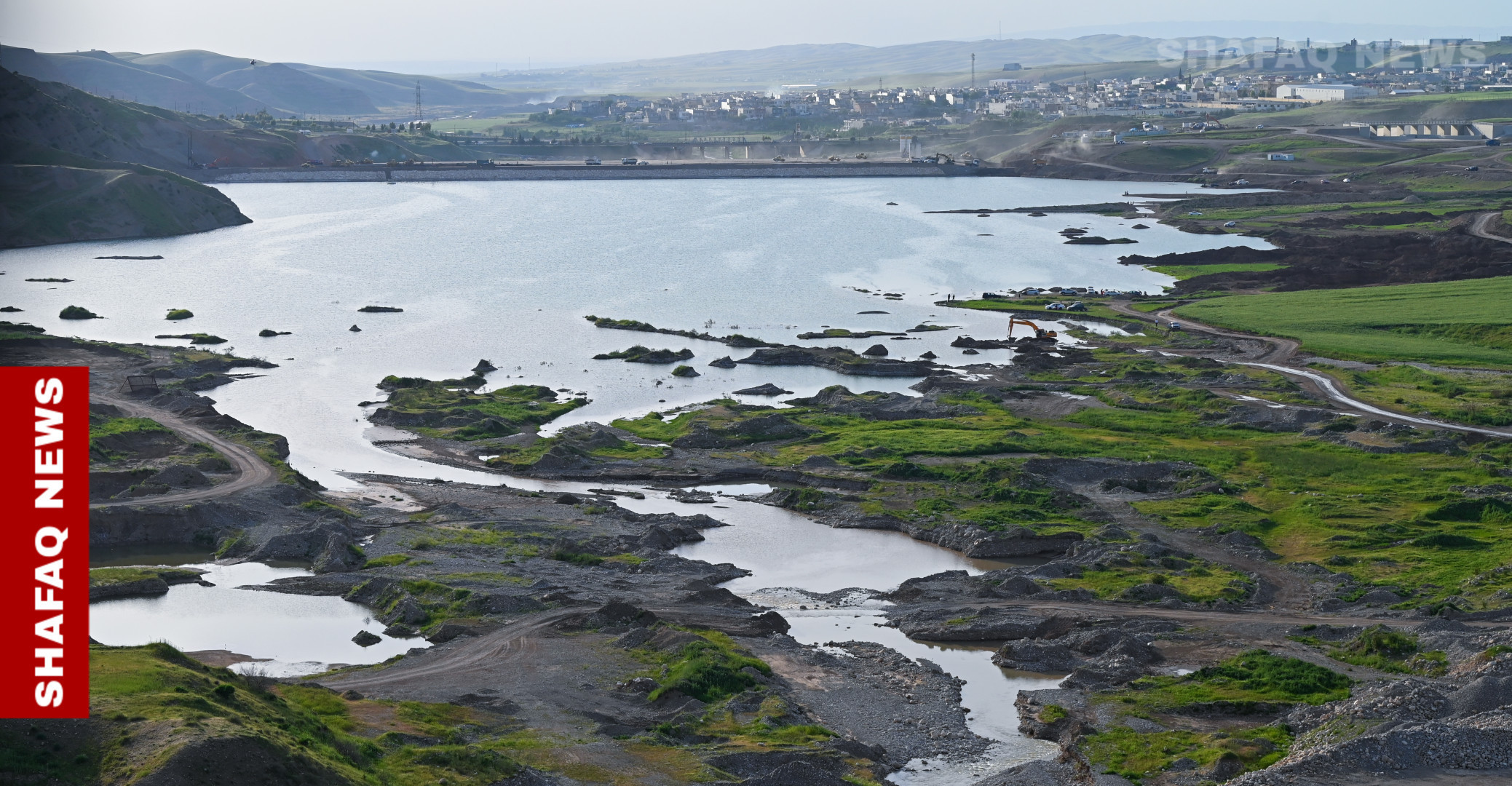
Shafaq News/ Iraq’s water crisis is deepening as reserves dwindle due to severe drought, poor resource management, and reduced water flows from upstream countries. The shrinking Tigris and Euphrates rivers, widespread agricultural land degradation, and rising pollution levels have exacerbated the crisis, raising concerns over food security and livelihoods nationwide.
A Nation Running Dry
Water specialist Tahseen Al-Moussawi told Shafaq News that Iraq is facing extreme water stress, despite ranking 24th in a UN report on global water scarcity. "There is no real transparency about the country's water reserves," he warned.
Preliminary figures suggest that Iraq’s water reserves do not exceed 20 billion cubic meters, a level Al-Moussawi described as "dangerous." However, the country’s total water consumption—spanning agricultural, industrial, and household use—stands at approximately 48 billion cubic meters, far surpassing available reserves.
Severe drought conditions have caused parts of the Tigris and Euphrates riverbeds to dry up, shrinking marshes and wetlands, killing livestock, and reducing agricultural land. In a recent statement, Ghulam Ishaq, the UN Secretary-General’s Special Envoy for Humanitarian and Development Affairs, revealed that 90% of the Tigris and Euphrates water is now contaminated.
The crisis is also forcing mass displacement. Statistics indicate that 37,000 people have migrated from southern Iraq due to climate-related water shortages.
Meanwhile, Nineveh Provincial Council member Mohammed Ahris raised concerns about dangerously low water levels at the Mosul Dam, warning that worsening drought conditions threaten thousands of farming families.
The Mosul Dam, a strategic water storage site, plays a crucial role in sustaining the Al-Jazira irrigation project, which covers 240,000 dunams of farmland and supports the production of wheat, barley, potatoes, tomatoes, sunflower seeds, and other crops. However, as Deputy Agriculture Minister Mahdi Al-Jubouri told Shafaq News, reduced water flows in the Tigris and Euphrates have already impacted both summer and winter agricultural plans, leading to a decline in cultivated areas.
Iraqi President Abdul Latif Jamal Rashid acknowledged the worsening situation, citing three key drivers: climate change, water mismanagement, and upstream nations restricting flows.
International reports rank Iraq among the five nations most affected by climate change. A 2022 World Bank report stressed the urgent need for a “greener growth model,” estimating that Iraq will require $233 billion in investments by 2040 to address pressing developmental and environmental needs. Meanwhile, Strategic Advocacy for Human Rights estimates that 30% of Iraq’s productive farmland has been lost in the past three decades.
Key Causes of Water Crisis
According to Al-Moussawi, Iraq's water sources depend heavily on snowmelt and rainfall in upstream countries such as Turkiye and Iran. However, climate patterns in these regions are shifting dramatically.
“Iraq is experiencing worsening water scarcity, with over 30% less rainfall expected in upstream basin countries by 2025,” he warned.
While the current rainy season remains ongoing, meteorologist Sadiq Attia told Shafaq News that rainfall across Iraq and the Middle East has been below expectations. He remained cautiously optimistic about some precipitation in spring but warned that it would be insufficient to offset severe drought conditions.
Further complicating the situation, Iraq lacks a formal agreement requiring upstream nations to release their allocated water shares. Experts warn that this legal vacuum risks intensifying shortages, worsening pollution, and further devastating downstream communities.
Al-Moussawi emphasized Iraq’s reliance on internal water inflows from snowmelt, which, while helpful, remains inadequate. He also highlighted geopolitical factors that exacerbate the crisis, including, disruptions at Syria’s Tishrin Dam, Turkiye’s reduction of water releases from the Ilisu Dam into the Tigris (from 500 cubic meters per second to just 75 cubic meters per second), and low precipitation levels across the region.
These factors pose a grave threat to Iraq’s fragile water security.
Push for Sustainable Solutions
To address the crisis, the Iraqi government took many steps. The Ministry of Water Resources signed a contract in August 2024 with Italy’s Hydro Nova and Jordan’s Concorde to develop sustainable irrigation systems and mitigate climate-related impacts.
Between 2023 and 2024, Iraq contracted 13,000 modern irrigation systems, irrigating 3.1 million dunams of land with groundwater. Plans are underway to expand coverage to 4 million dunams.
These advancements have already led to higher wheat production, with yields exceeding one ton per dunam—a significant improvement over the 850 kg per dunam produced in traditionally irrigated areas.
The United Nations in Iraq has also launched the "Water is Life" campaign in collaboration with the Ministry of Water Resources. The initiative will unfold in four phases throughout 2025:
1. Raising awareness about water scarcity and climate change effects
2. Identifying key players in water resource management and promoting cooperation
3. Showcasing ongoing projects led by the Iraqi government and UN agencies
4. Focusing on future strategies, including Iraq’s participation in international forums to secure funding and support
Meanwhile, Deputy Agriculture Minister Mahdi Al-Jubouri highlighted Iraq’s recent adoption of modern irrigation systems to optimize water usage and boost agricultural productivity.
In the Kurdistan Region, Erbil’s Irrigation Directorate is working to channel water from the Great Zab River to irrigate 80,000 dunams of farmland in Shamamak. Additionally, the directorate is overseeing the construction of 33 water reservoirs in the green belt surrounding Erbil, with a combined storage capacity of 18 million cubic meters.
However, budget constraints have slowed progress on these projects. "Three reservoirs have been completed, but financial limitations have delayed the rest," said Rebwar Hussein, director of Erbil’s Irrigation Directorate.
Despite these initiatives, water expert Al-Moussawi remained critical of Iraq’s progress. "Current solutions are temporary," he argued. "Instead of addressing the root causes, these measures have merely evolved into long-term plans without concrete action. The government must adopt more aggressive and sustainable policies to combat climate change and desertification."
